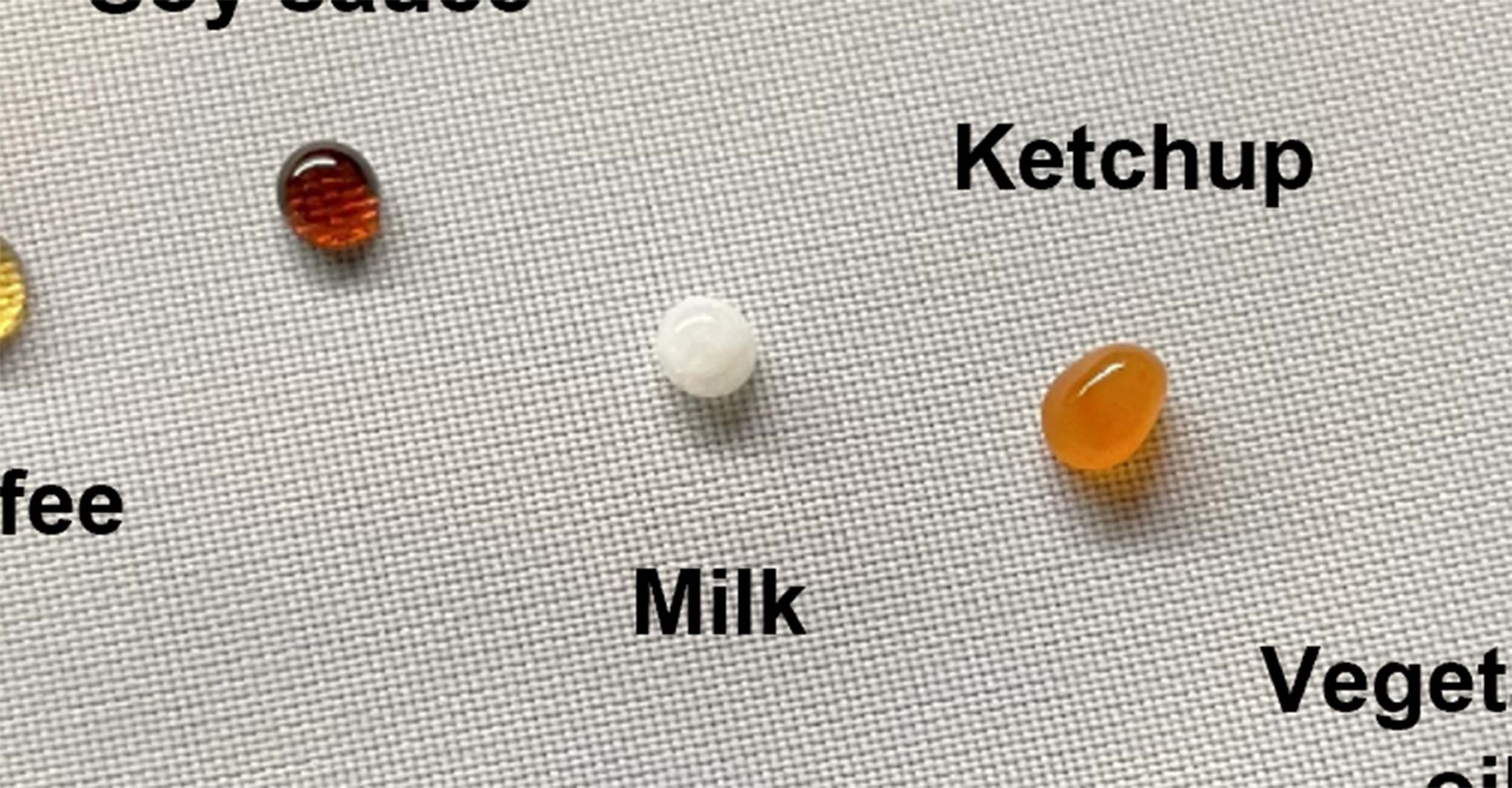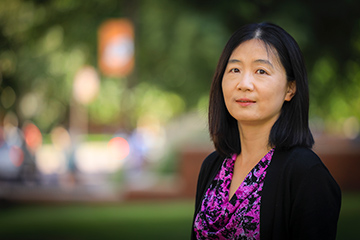
Necessity Is The Mother of Invention
Tuesday, March 1, 2022
Media Contact: Kimberly Watkins | Communications Coordinator | 405-744-3546 | kimberly.watkins@okstate.edu
If the proverbial, “necessity is the mother of invention” is true, then spill resistant fabric will become a textile revolution.
For Dr. Yu Jessie Mao, a daily chore — washing spills out of fabric — was the catalyst for what could be a textile revolution.

Mao, a material scientist at Oklahoma State University, often has lightbulb moments at home with her two children and this was no different. She wanted to develop a spill resistant fabric.
As a mom, her inspiration was a common problem in many households — spills.
“I had an idea,” Mao said. “Because I was constantly washing clothes and tablecloths.”
In 2017, she began to meet with her lab partners to develop the idea, a year later they had determined that a spill resistant fabric would be their goal.
The end result of that goal was OmniPhobic — an all-resistant textiles technique. The fabric is created with a shield of sorts protecting it from stains. So instead of spraying the fabric with a protectant the fabric is created with the protectant.
Omniphobic is not an application process nor spray, it is the actual fabric.
“I’m a chemist,” Mao said. “I knew it needed to be permanent. It is the fabric.”
More importantly this concept and eventual product is short-chain — having less than six carbons in their chemical structure, which scientists believe to be more environmentally friendly.
“The sediment doesn’t come off and end up in our water,” Mao said. “I saw the need in daily life, that was the spark. I knew it would benefit a lot of families and industries. It’s so rewarding to help make a difference.”
The fabric could not have been possible without a team effort, Mao said.
“In the lab or by Zoom calls, we come up with things we want to pursue and we reach out to each other," Mao said, “I like the internal community [at OSU]. We have researchers from different areas and we help each other.”
Although OmniPhobic is currently not available to the everyday consumer, Mao hopes it will benefit hospitality and commercial airlines industries.
Through Cowboy Innovations — the bridge for OSU technology to the real world — Mao has brought OmniPhobic to industries.
However, seat cushions, airline seats, and hotel and restaurant tablecloths and linens are just a few of Mao’s visions. She hopes to expand the availability of the fabric to manufacturers and eventually to the consumer.
“This is what I love about being a scientist. We experience real world problems and then discuss possible solutions that can truly help others,” Mao said.
